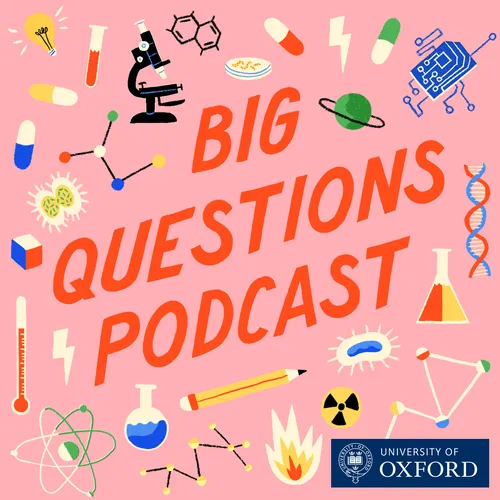
Oxford Sparks Big Questions
'Will my bacon sandwich kill me?', 'Is vaping better than smoking?', 'How do you become an astronaut?' - just some of the Big Questions we ask some of the brightest minds behind Oxford science. Join us in each podcast as we explore a different area of science.
- Update frequency
- every 14 days
- Average duration
- 13 minutes
- Episodes
- 101
- Years Active
- 2020 - 2025

How do you convert CO2 into jet fuel?
Increasing levels of CO2 in our atmosphere are a big cause for concern. So what if we could find a way to not only remove some CO2 from the air, but turn it into something useful too? That's exactly …

How do you use social media to deliver humanitarian aid?
Forced displacement of human populations owing to conflict or natural disasters is very difficult to measure. During these crises, the traditional methods of assessing changes in populations - which …
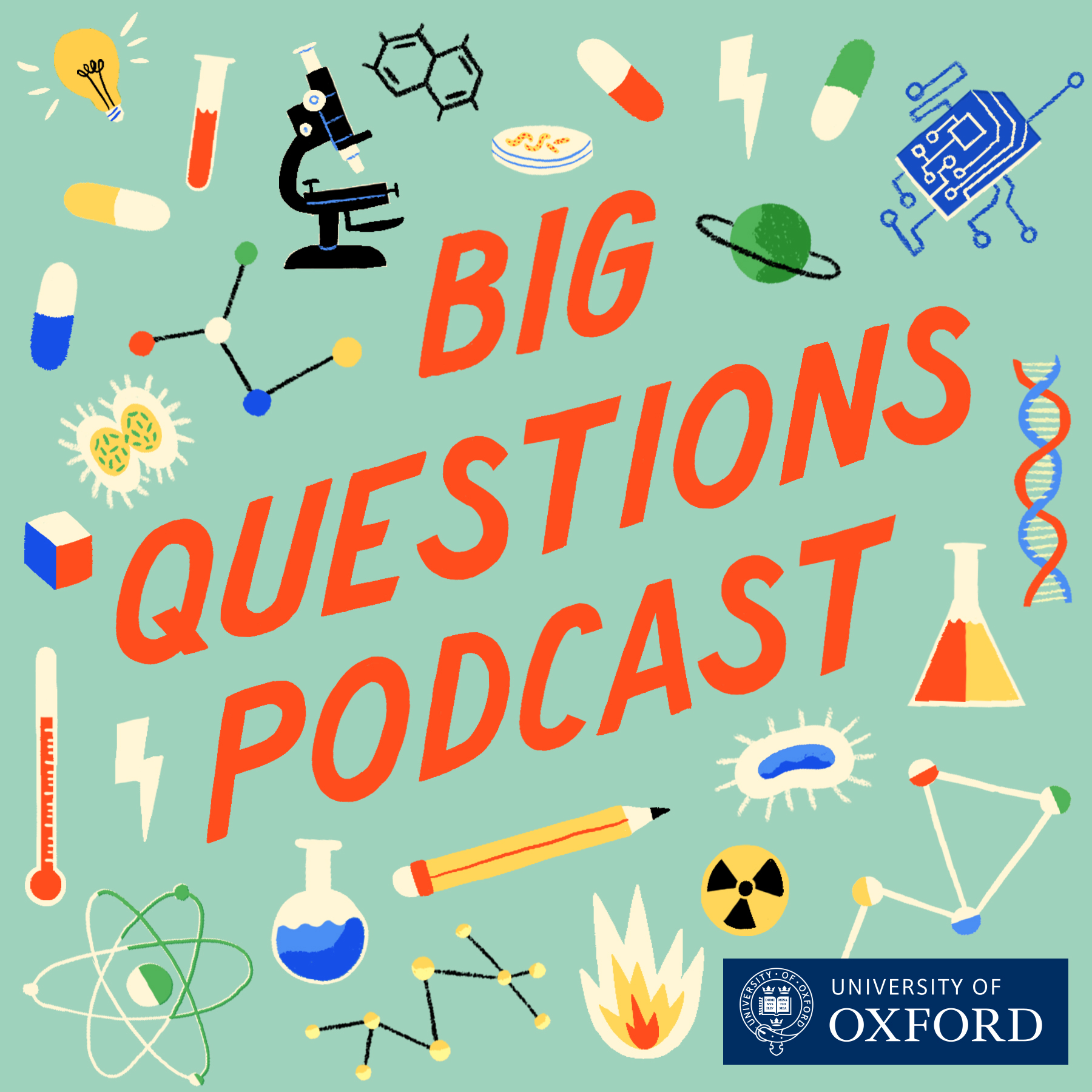
How has life expectancy changed after the pandemic?
Demographers (researchers who study the statistics of human populations) look at factors such as birth rates, death rates, migration and life expectancy. But what exactly is meant by the term 'life e…

Can you make a dengue fever forecast?
More than half the world's population is at risk from dengue fever, a viral infection that is spread via the bite of an infected mosquito. While some cases of the disease can be mild, others can be e…
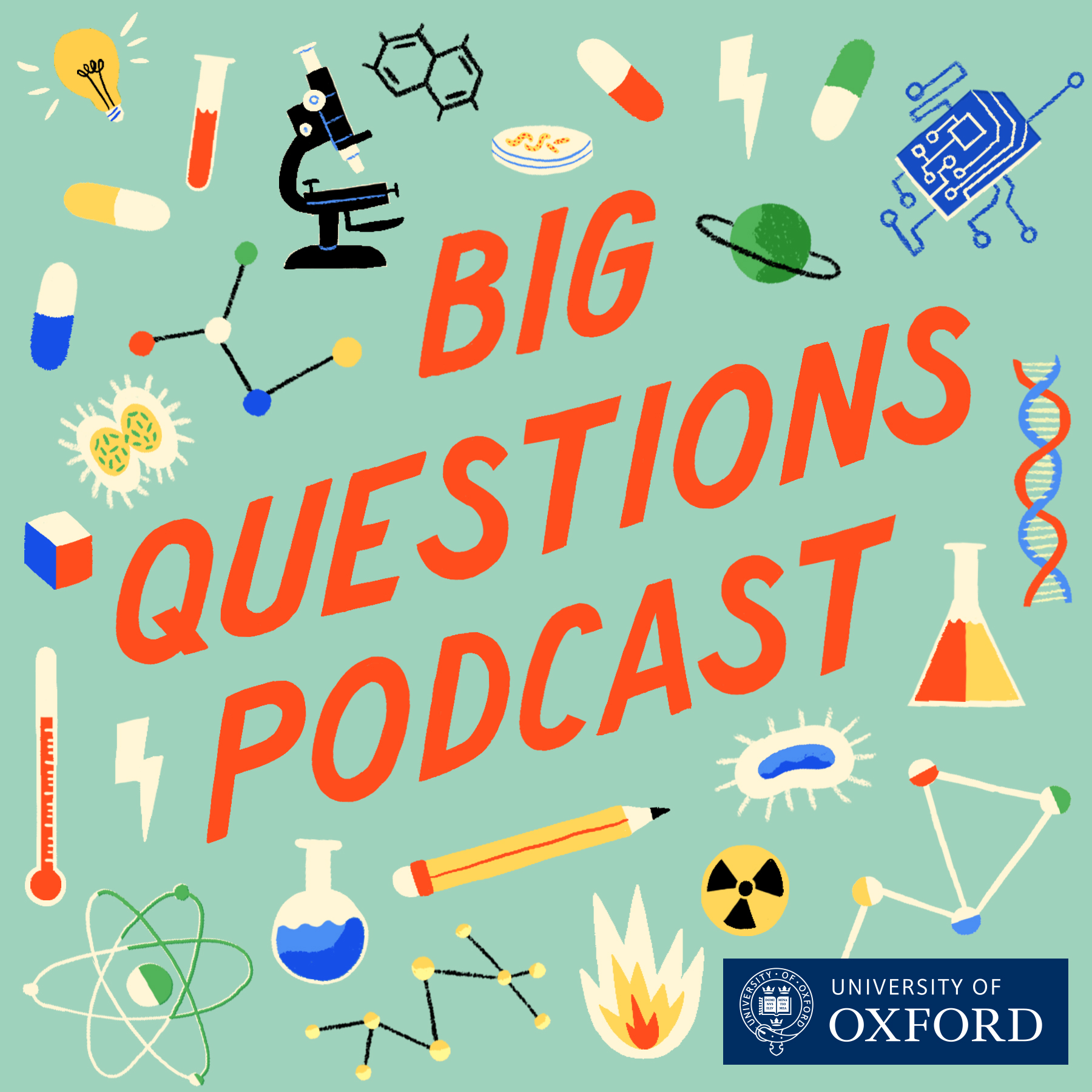
Can my gut health improve my mental health?
Our gut microbiome (that's all the microorganisms - such as bacteria, viruses and fungi - living in our gut) is really important for healthy digestion. But did you know that it's also linked to our m…

Why do research on research?
We've talked about a lot of different types of research on this podcast...from investigations into drought, to space exploration, to the future of food. But what about researching 'research' itself? …

How could spider sex unlock secrets to engineering?
Not everyone is the biggest fan of spiders...we know that. They might not be the first thing that springs to mind when it comes to romance, either! But, you've got to admit, when it comes to engineer…

Is the metaverse doomed?
Ask an internet aficionado what the 'next big thing' is, and they might respond with 'the metaverse'. This is the idea that we could soon be wandering in a virtual world - a kind of global, immersive…
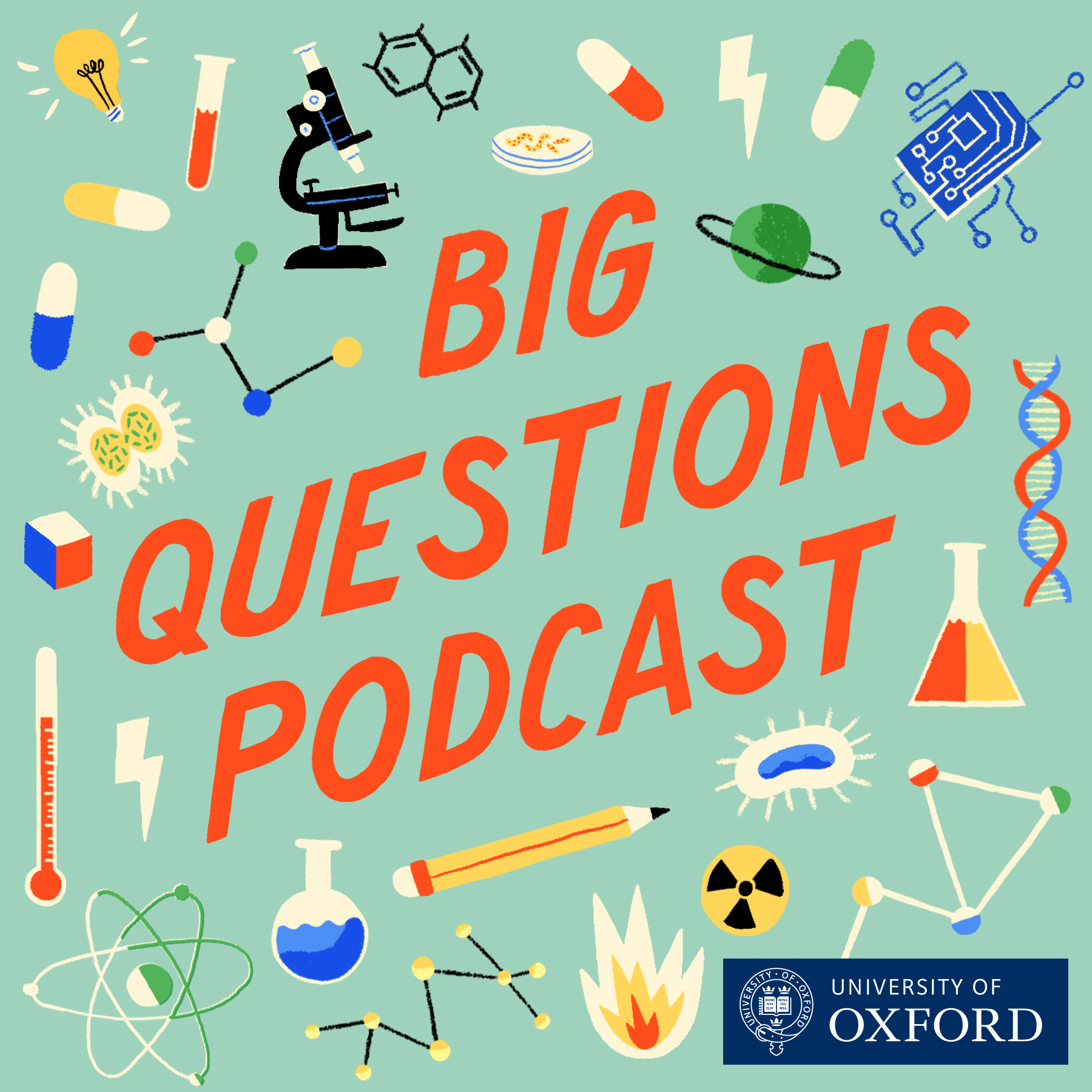
Can you cure jet lag?
If our internal body clock is telling us it's 3am, but the external environment is telling us it's 12 noon, that's called jet lag. It's a mis-match between what's going on inside our bodies and what'…

Should I feel guilty eating turkey at my Christmas dinner?
While the tradition of eating turkey at Christmas can be traced back to Henry VIII, it's really only been a staple part of our Christmas dinner since the early 20th Century. However, in the UK, it's …
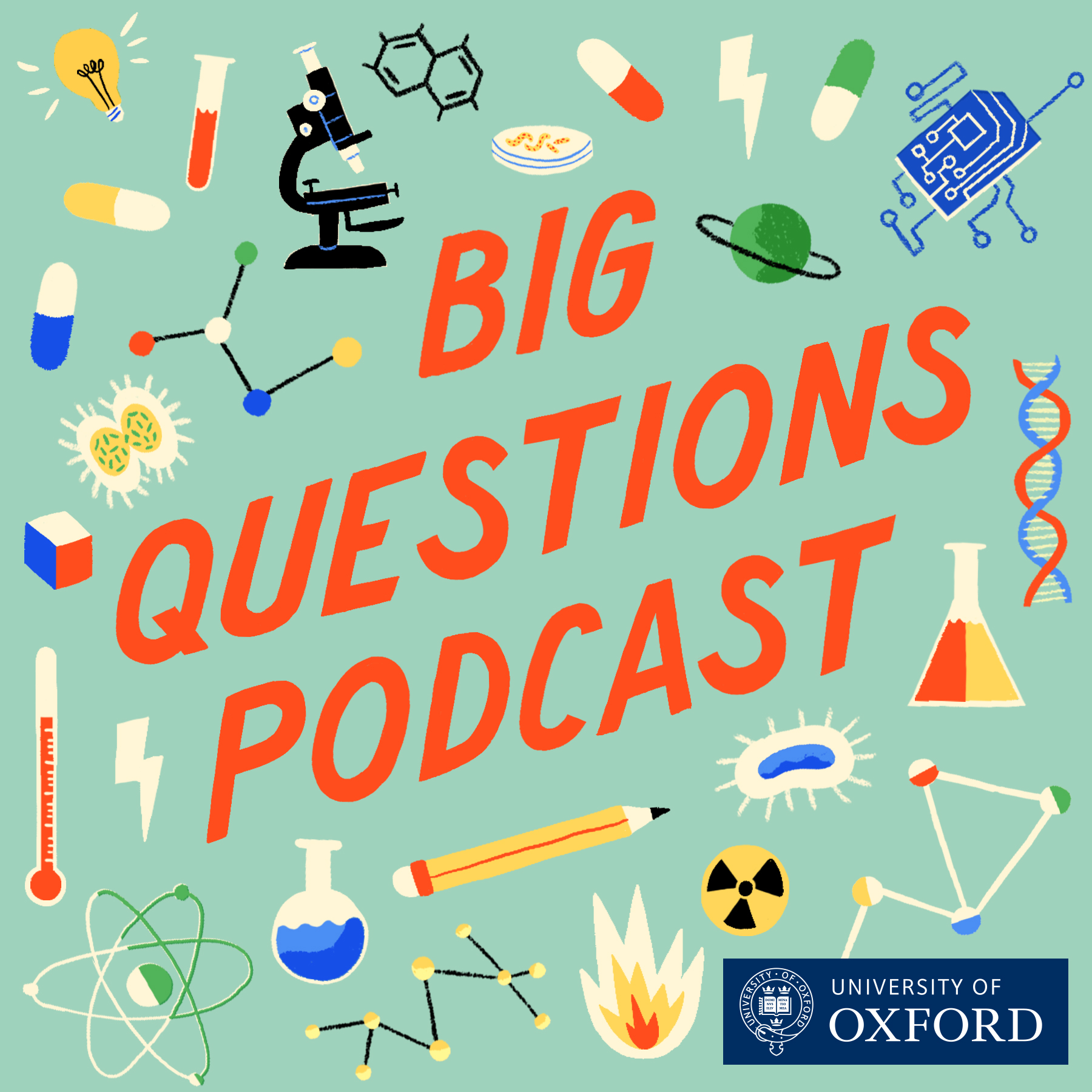
How can a simulation help treat kidney stones?
Around 10% of us will experience kidney stones at some point in our life. They occur when waste products in the blood form small crystals, which gather together in the kidneys to form hard lumps. Sma…

How were new craters on Mars discovered?
When a space rock smashes into the surface of a planet, a hole - or crater - is formed. New craters might be relatively straightforward to identify on Earth, but what about on other planets, such as …

What makes the human brain so special?
We often hear that we're remarkably similar to our primate relatives, both in terms of our genetics and our behaviour. We're social beings. We use tools. But only humans have come to dominate the pla…
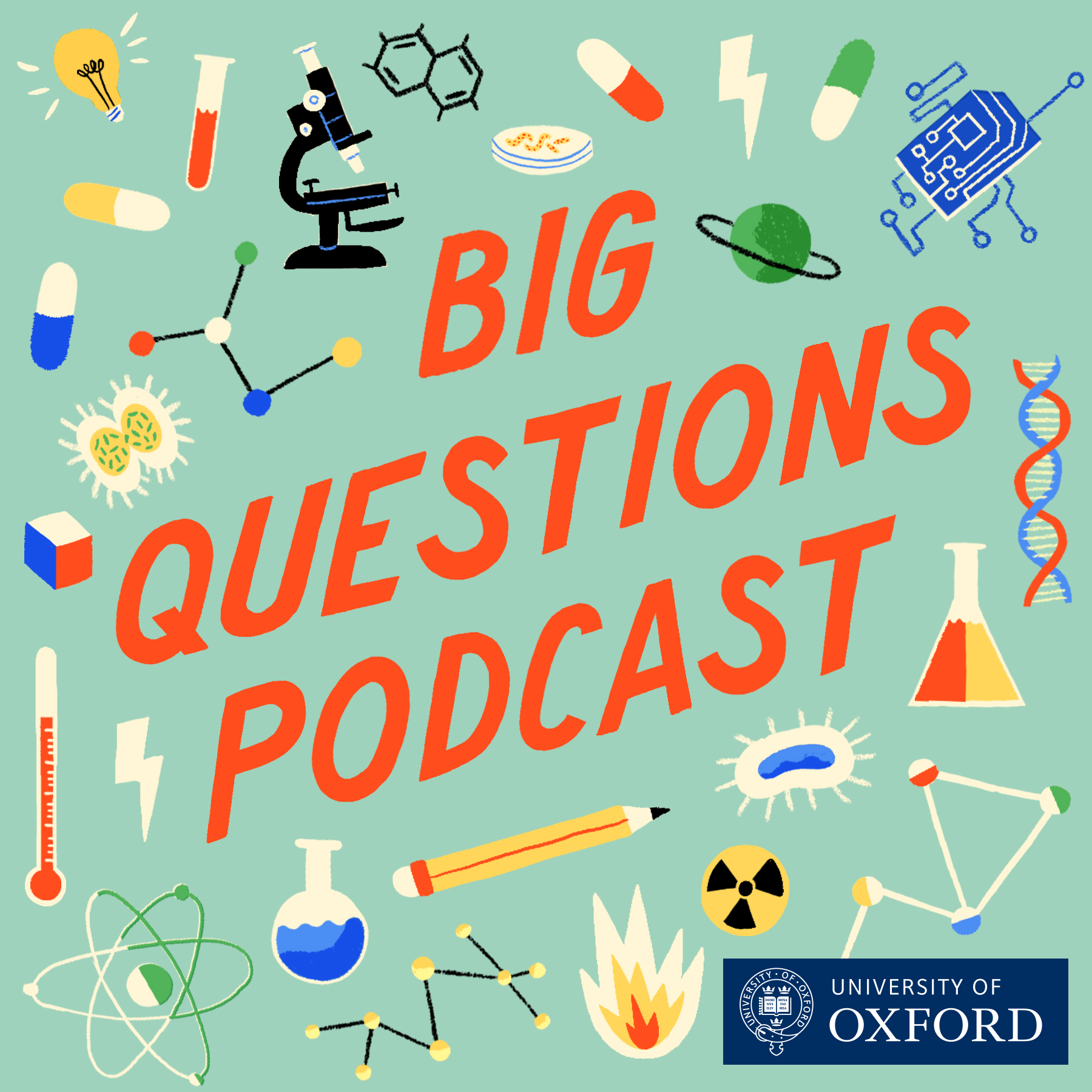
Why is the UK still in a drought?
Here in the UK, we have a reputation for grey, drizzly weather. But there's no denying that this summer was HOT and this summer was DRY. With soaring temperatures and little to no rain for weeks on e…

Why is the James Webb Space Telescope a big deal?
Are we alone in the Universe? What exactly lies at the centre of our galaxy? Just like our podcast, the James Webb Space Telescope aims to answer some *very big questions*. Launched on Christmas Day …

What is green steel?
Steel has become an essential commodity in modern society - used in everything from our cars and our buildings to the cutlery we use to eat our dinner. Unfortunately, the process used to traditionall…

How do you create autonomous robots that can investigate under the sea?
How do you retrieve data from sensors embedded in underwater settings - such as those monitoring ecosystem change, for example? Well, when human divers aren't an option (which is often the case) it's…

How do you grow the perfect tomato?
Is there anything nicer than a fresh, juicy, home-grown tomato on a summer's day? Whether you like them sliced up in a sandwich or blended into a delicious sauce, in this episode of the Big Questions…

How is misinformation about the war in Ukraine spreading?
Misinformation about the war in Ukraine - and countless other topics, such as the pandemic and climate change - spreads like wildfire online. It aims to confuse people, make them question their own k…

How does a pandemic end?
Masks, social distancing, lockdowns. We've become intimately familiar with numerous COVID-19 control measures over the past two years. Now, with most restrictions gone (at least here in England), doe…